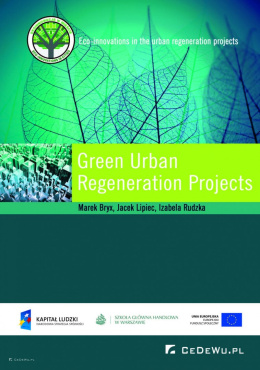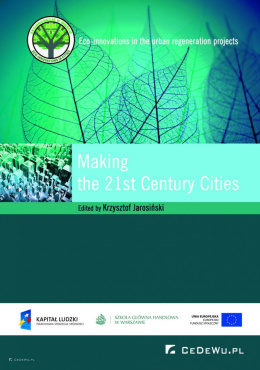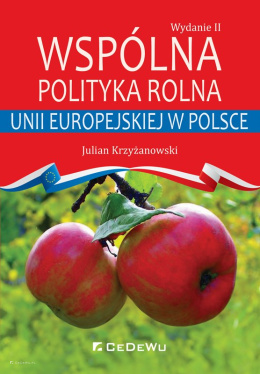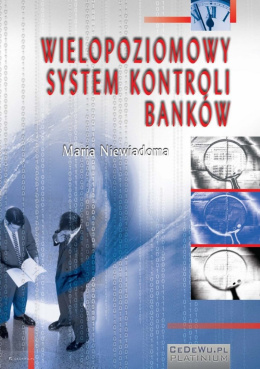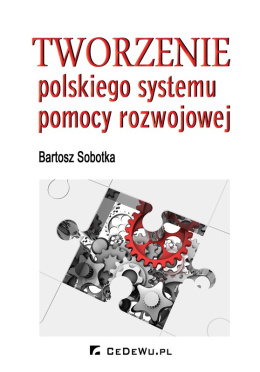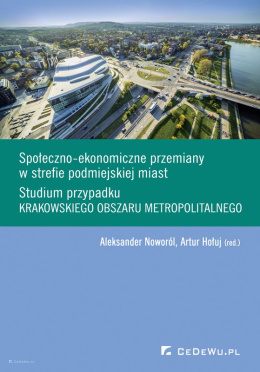-
Koszyk jest pusty
-
x

-
Koszyk jest pusty
-
x
- Kategorie
-
Eco-innovations in Cities
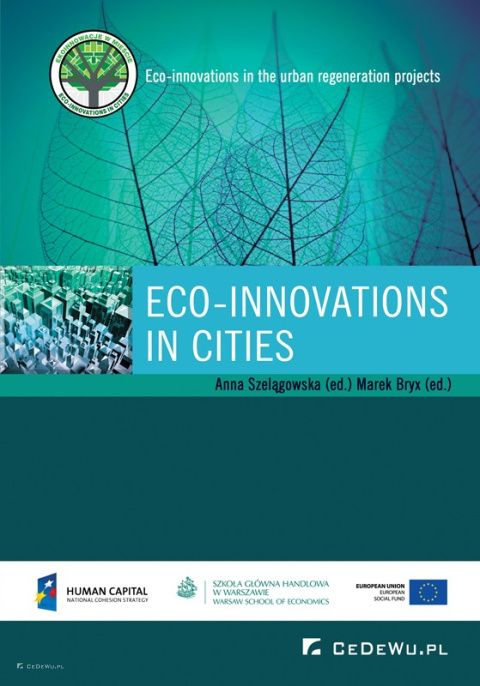
E-booki wysyłane są w formie linku do pobrania po zaksięgowaniu środków i zaakceptowaniu zamówienia przez Obsługę, jeżeli w opisie książki nie znajduje się gotowy link do pobrania publikacji. Wysyłka plików cyfrowych odbywa się od poniedziałku do piątku w godz. 10:00 – 18:00.
| Wysyłka w ciągu | 24 godziny |
| Kod kreskowy | |
| ISBN | 978-83-7941-231-0 |
| EAN | 9788379412310 |
Download
Pobierz plik: E-Book 7 - ECO-INNOVATIONS IN CITIES (pdf)
Eco-innovations in Cities will serve as an important book for practitioners and policy-makers looking to develop a strong future for modern cities. The authors present an approach toward sustainability where cities are accountable for providing both ecological stability and economic growth, allowing a city to regenerate not only essential natural resources, but also the neighborhoods and social relationships that are affected by the forces of creative destruction over time. This requires more than simply renovating crumbling infrastructure. It requires creativity in the design of social relationships, political strategies and business models to support investments in green technologies which provide social benefits that can be difficult for entrepreneurs to capture. Fortunately, the authors provide useful, practical examples of cities and business models demonstrating the imagination needed to make sustainable cities a reality in the future.
Prof. Michael Wenz
Department of Economics, Northeastern Illinois University
Introduction 7
Preface 13
PART 1
Emerging City Labels - a Global Overview - Dominika P. Brodowicz 17
1. Introduction 19
2. Growth as a challenge for cities heading towards sustainability 19
3. Green and eco-cities 22
4. Smart cities 27
5. Conclusions 29
Literature 30
PART 2
Planning an Eco-city as a Creative City - Stanisław Łobejko 33
1. Introduction 35
2. Modern role of creativity 35
3. Creative city 38
4. Planning creative city as eco-city 40
5. Conclusion 45
Literature 46
PART 3
Principles of Green Urban Regeneration Projects - Marek Bryx, Jacek Lipiec, Izabela Rudzka 49
1. Introduction 51
2. Green urban, green cities, green regeneration projects 53
3. Deprived areas - reasons and problems to solve 57
4. Definition of regeneration processes 63
5. Delimitation of deprived areas 65
6. Uniqueness and its usefulness for a city 69
7. Common purposes of green cities and green regeneration projects 74
8. Uniqueness and global challenges in a city strategy and its Local Development Plan 76
9. Financial principles of local self-government units 80
10. Local governments' green bonds as new class investments in the Climate Agenda 85
11. The cases of green bond issuances 92
12. Summary 95
Literature 97
PART 4
Green Business Models in Highly Innovative Projects as a Tool to Reinforce Sustainable Development - Katarzyna G. Sobiech-Grabka, Paweł Nowakowski 101
1. Introduction 103
2. Barriers for financing green investments 108
3. Core components of green business models 111
3.1. Enterprise interface of the green business model 115
3.2. Customer interface of the green business model 116
3.3. Profit model of the green business model 117
4. Typology of business models used to implement eco-innovations 119
5. External factors influencing the business models and investment's efficiency 130
6. Business models in overcoming the market failures 133
7. Conclusions 136
Literature 137
PART 5
Selected Aspects Regarding Development of Urban Entrepreneurship - Marcin Wojtysiak-Kotlarski, Ewelina Szczech-Pietkiewicz, Katarzyna Negacz 139
1. Introduction 141
2. Entrepreneurship as a determinant of urban competitiveness: risks of the approach. Case of Barcelona
2.1. Introduction 143
2.2. Concept of urban competitiveness 143
2.3. Entrepreneurship as urban competitiveness determinant 144
2.4. Case-study of Barcelona 147
3. Sustainable development in the city - the case of Taipei 151
3.1. Introduction 151
3.2. Implementation of sustainable development in urban areas 151
3.3. From congested, littered and abandoned to easy commuting, clean and culture thriving city - case of Taipei 157
3.3.1. Transportation system - easy cards 157
3.3.2. Waste management - PAYT 159
3.3.3. Heritage preservation 159
3.3.4. Conclusion 160
4. Entrepreneurship and socially responsible investments in urban context. The case of start-up scene in London, UK 161
4.1. Entrepreneurship - again a hot topic on academic agenda 161
4.2. Socially responsible investments - a new and promising trend in business 163
4.3. Support for entrepreneurship in specific urban context - the case of Unrulyversity within Tech City, part of a start-up scene in London 165
4.4. Final remarks 167
Literature 168
Summary 171
Table of Contents 173
Figure of Contents 174
Polub nas na Facebooku





